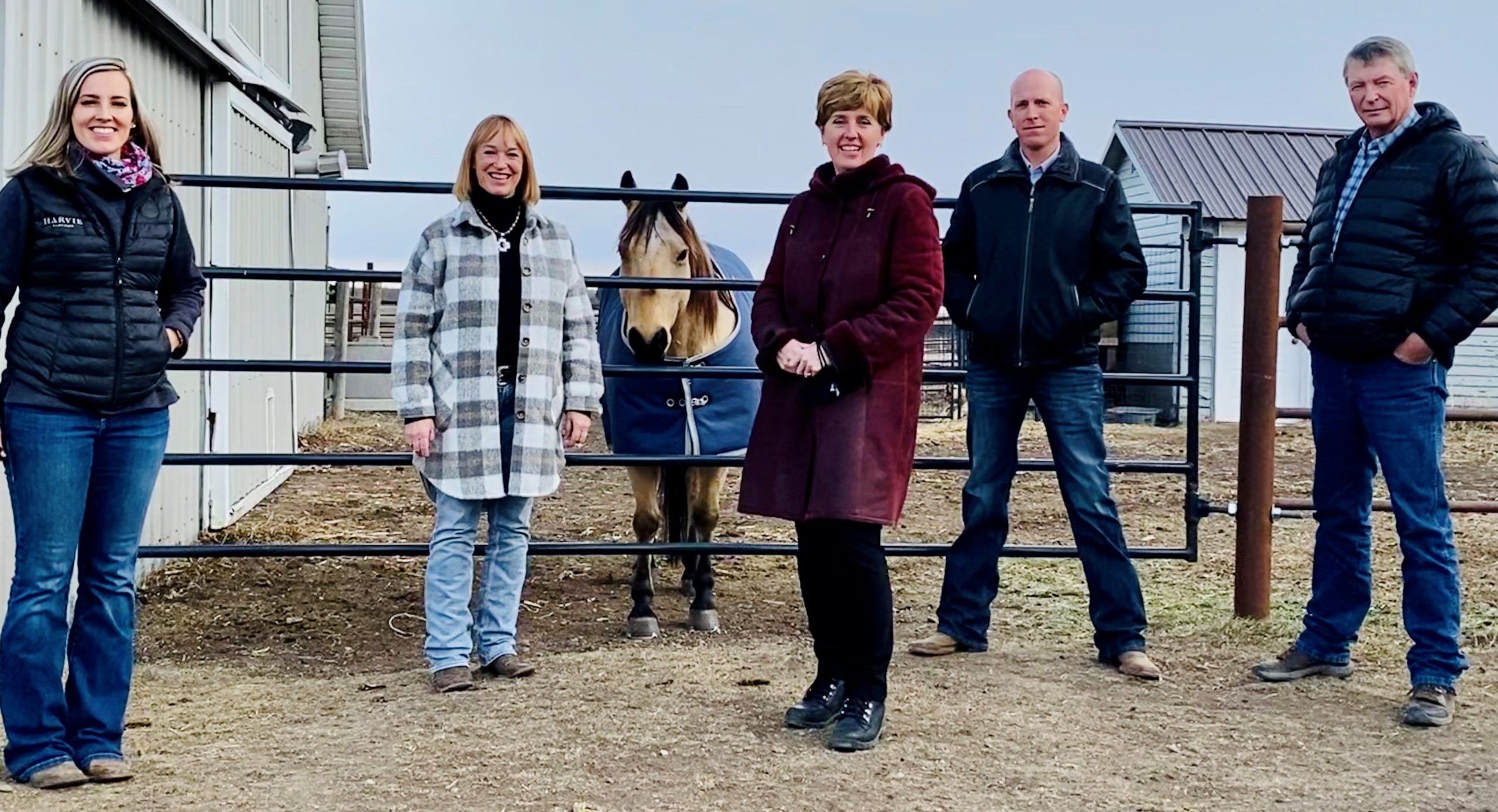AB Direct - Steers
Rail: ---
AB Direct - Heifers
Rail: ---
US Trade- Steers
Rail: 290.00 (IA)
US Trade - Heifers
Rail: 290.00 (IA)
Canadian Dollar
0.02

Helping drought-stricken cattle producers bounce back and beyond
It’s been a tough year for many cattle producers in Western Canada who have suffered through the worst drought in 70 years. Last summer, I visited some of the hard-hit regions of the Prairies during the peak of the drought. It was heartbreaking to see the sun-scorched fields and to meet farm families forced to send the majority of their breeding herds to market, selling genetics developed over generations at a fraction of their worth.
Farmers needed their governments to act, and fast. Working closely with each of the affected provinces, we rapidly deployed programs that could deliver a total of up to $825 million in federal-provincial shared disaster relief funding under the AgriRecovery framework. Across Western Canada and northwestern Ontario, well over 20,000 livestock producers, mainly cattle producers, have already received over $300 million under AgriRecovery, helping them access feed and water for their animals. And more payments are processed each day. The ranchers I met during my recent trip near Olds, Alberta told me just how much this quick support meant to them during a time of need.
We also changed the crop insurance program so that grain producers could offer their damaged crops for animal feed and still be eligible for crop insurance payments. We got more money into the pockets of farmers through larger advance payments under the AgriStability program. And we have committed $4 million to the Canadian Federation of Agriculture’s Hay West program, covering transporation costs for Eastern Canadian farmers to share their bumper forage crops with their Western neighbours in need.
This year’s drought and the flooding that struck British Columbia are a stark reminder that farmers and ranchers are among the hardest hit by climate change.
This year’s drought and the flooding that struck British Columbia are a stark reminder that farmers and ranchers are among the hardest hit by climate change. In early December, I travelled to the Fraser Valley to visit with farm families, whose lands, livestock and livelihoods have been ravaged by floods and mudslides.
As we respond to catastrophes now, we must also look to the long term. Extreme weather events like this are adding more stress and unpredictability to farm businesses, and taking a toll on producers’ mental health. How are we to build a sustainable sector that ensures clean water, air and soil for the next generation of producers?
Canadian beef producers have already made great gains in sustainable agriculture. Today, the industry has half the greenhouse gas footprint per kilogram of production, compared to the global average. More than ever, Canadians are choosing Certified Sustainable Beef. And you have taken up the challenge of the Global Methane Pledge, to reduce methane emissions by at least 30 per cent below 2020 levels by 2030.
Now is the time to double down to improve our resilience to the effects of climate change and reduce greenhouses gas emissions within the sector. Because without continued sustainability, we compromise our competitiveness. Canada’s trading partners are demanding a sustainable product with a low carbon footprint, and Canadian beef producers are delivering, with 2020 exports up by 25 per cent.
We want to help Canada’s beef industry build on this great work. Over the past year, the Government of Canada has launched over half a billion dollars in new programming to help farmers adopt sustainable practices and clean technologies. We’re also working together with provinces to shape the next five-year, multi-billion dollar agricultural policy framework, with a shared vision that prioritizes the sustainability of the sector.
The sky is the limit for Canada’s beef industry. Demand for protein is growing and producers will have a huge role to play in feeding a growing world population. Canadian beef producers can rest assured that we will stand shoulder-to-shoulder with them to support their growth, resilience and sustainability.
This article was first published in Volume 2 Issue 1 of ABP Magazine (January 2022). Watch for more digital content from the magazine on ABP Daily.
Leave a Comment
Add abpdaily.com to your home screen
Tap the menu button next to the address bar or at the bottom of your browser.
Select ‘Install’ or ‘Add to Homescreen’ to stay connected.



Share this article on
About the Author
The Honourable Marie Claude-Bibeau is Canada's Minister of Agriculture and Agri-Food. Minister Bibeau was first elected as the Member of Parliament for Compton-Stanstead in 2015, and in March 2019, she became the first woman in Canadian history to be appointed federal Minister of Agriculture and Agri-Food.